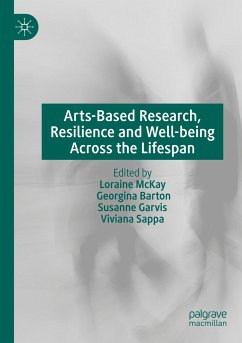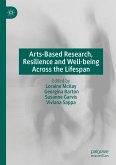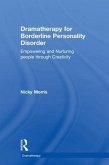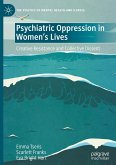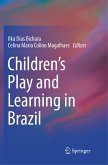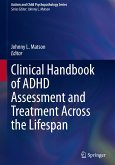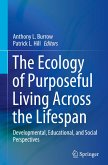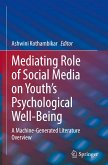This book investigates how arts-based research methods can positively influence people's resilience and well-being, particularly in constraining environments. Using examples from arts-based research methods in different contexts and from across the globe, the book brings together a diverse range of perspectives to understand how both resilience and well-being can be supported in a world that is rarely stress free.
Collectively they demonstrate how arts-based research methods can: provide agency through the foregrounding of participants' voices; afford transformational learning opportunities; create opportunities for relationship building; support creativity and new ways of thinking; generate aspirations and hope; encourage forms of communication that expose ideas, emotions and feelings that previously might not have been known or known how to be expressed; and enhance reflection and reflexivity. The authors explore how art-based practices, such as clowning, collage, dramatisation, drawing, painting, role-play and sculpting, can be used to support the resilience and well-being of individuals and groups across the lifespan, and theorize how arts-based research methods can positively contribute to participants' positive self-esteem, self-image and ability to cope with challenges and new circumstances. Academics, professional learning facilitators, higher education students, and anyone interested in resilience and well-being in the health and education sectors will find this an interesting and engaging text.
Collectively they demonstrate how arts-based research methods can: provide agency through the foregrounding of participants' voices; afford transformational learning opportunities; create opportunities for relationship building; support creativity and new ways of thinking; generate aspirations and hope; encourage forms of communication that expose ideas, emotions and feelings that previously might not have been known or known how to be expressed; and enhance reflection and reflexivity. The authors explore how art-based practices, such as clowning, collage, dramatisation, drawing, painting, role-play and sculpting, can be used to support the resilience and well-being of individuals and groups across the lifespan, and theorize how arts-based research methods can positively contribute to participants' positive self-esteem, self-image and ability to cope with challenges and new circumstances. Academics, professional learning facilitators, higher education students, and anyone interested in resilience and well-being in the health and education sectors will find this an interesting and engaging text.

